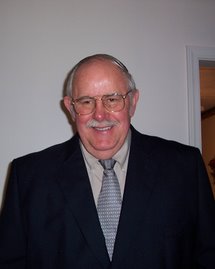COMMENTS ON REVIVAL BY JONATHON
EDWARDS IN DISTINGUISHING MARKS
It would not be
correct to assert that Edwards here spoke with complete impartiality; he did
champion the cause of the revival, earnestly pleading its validity and divinity.
Yet even in these exciting days of 1741 a power of discrimination is evident in
Edwards which later was given fuller and freer expression. In Distinguishing
Marks, Edwards dismissed as irrelevant such things in the revival as its extraordinary
intensity, its effects "on the bodies of men," its showy, noisy religiousness,
its effects upon men's imaginations, and the irregularities, disorders, and errors
of some who were associated with it.
These things may, we
know from Scripture, accompany a divine work; on the other hand, Edwards stated, they
have appeared in situations that were not of God's doing. They are then not
trustworthy criteria by which one may judge the contemporary religious scene.
Arguing closely
from his text, I John 4, Edwards presented a positive statement of valid criteria.
The "distinguishing marks" were five: a true revival (i) will cause a
greater esteem for Jesus (I John 4:2), (2) will operate against the interest
of Satan (4:4, 5), (3) will cause a greater regard for scripture (4:6),
(4) will lead persons to truth, convincing them of those things that are
true (4:6), and (5) "operates as a spirit of love to God and man"
(4:7 f). From his "trial of the spirit" then rushing throughout New England,
Edwards judged "that the extraordinary influence that has lately appeared causing an
uncommon concern and engagedness of the mind about the things of religion is
undoubtedly, in general, from the Spirit of God."8
Extended among so
many places and over so many months, the revival cannot be a pretense or
delusion. As
far as the Northampton experiences are concerned, "we must throw by all talk of conversion and Christian
experience; and not only so, but we must
throw by our Bibles, and give up revealed religion; if this |be not in general
the work of God."9 In view of this judgment, the commencement speaker warned all "by no means
to oppose, or do any thing in the
least to clog or hinder, the work; but, on the contrary, do our utmost to promote it." In the
coldest, darkest corner of New England,
by New Light standards, Edwards had defended the Great Awakening and had spoken
harsh words to any that tried to thwart it. He was never invited back.
(From THE GREAT AWAKENING IN NEW ENGLAND BY
EDWIN SCOTT GAUSTAD, Quadrangle Books Edition 1968)
EDWIN SCOTT GAUSTAD, Quadrangle Books Edition 1968)



No comments:
Post a Comment